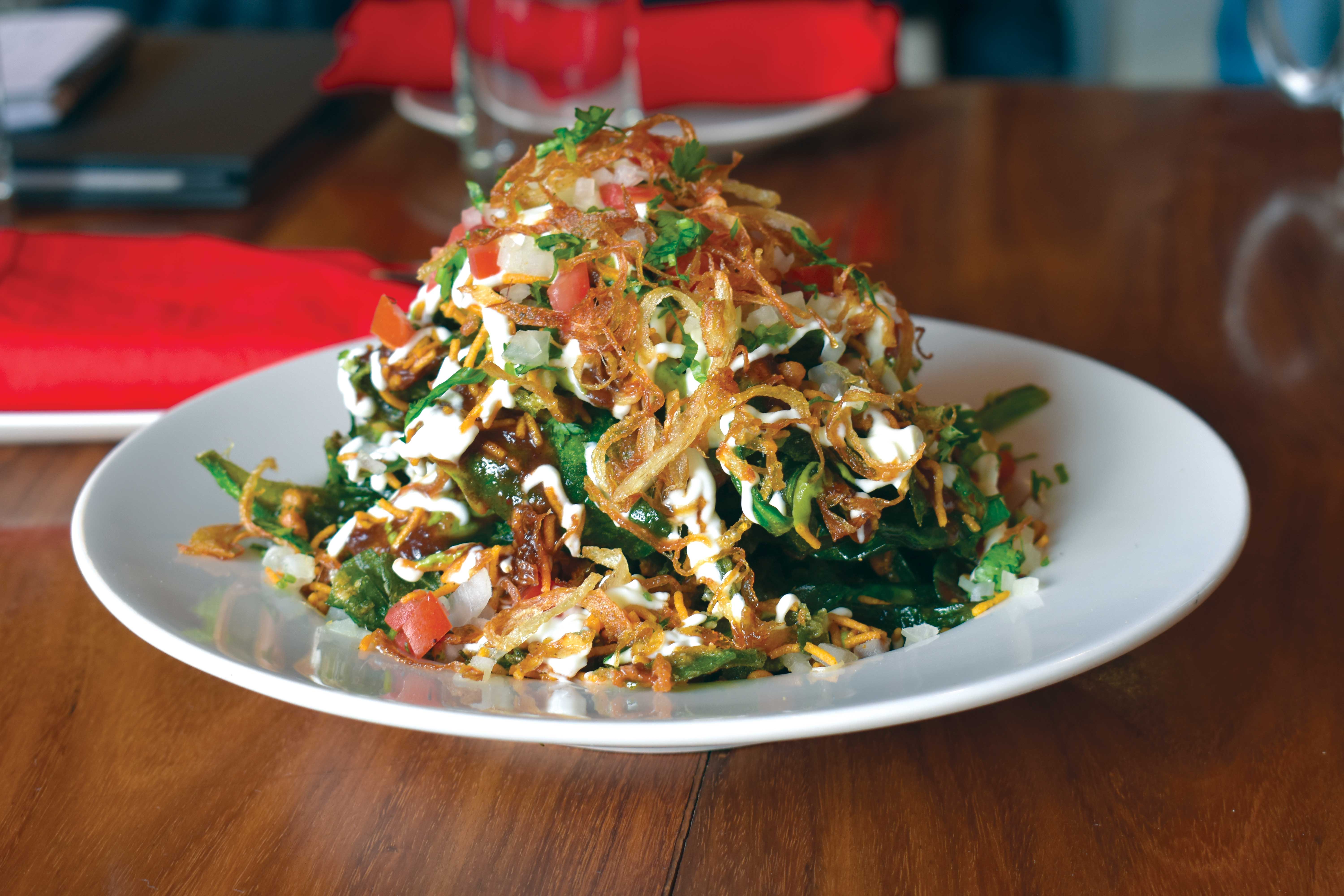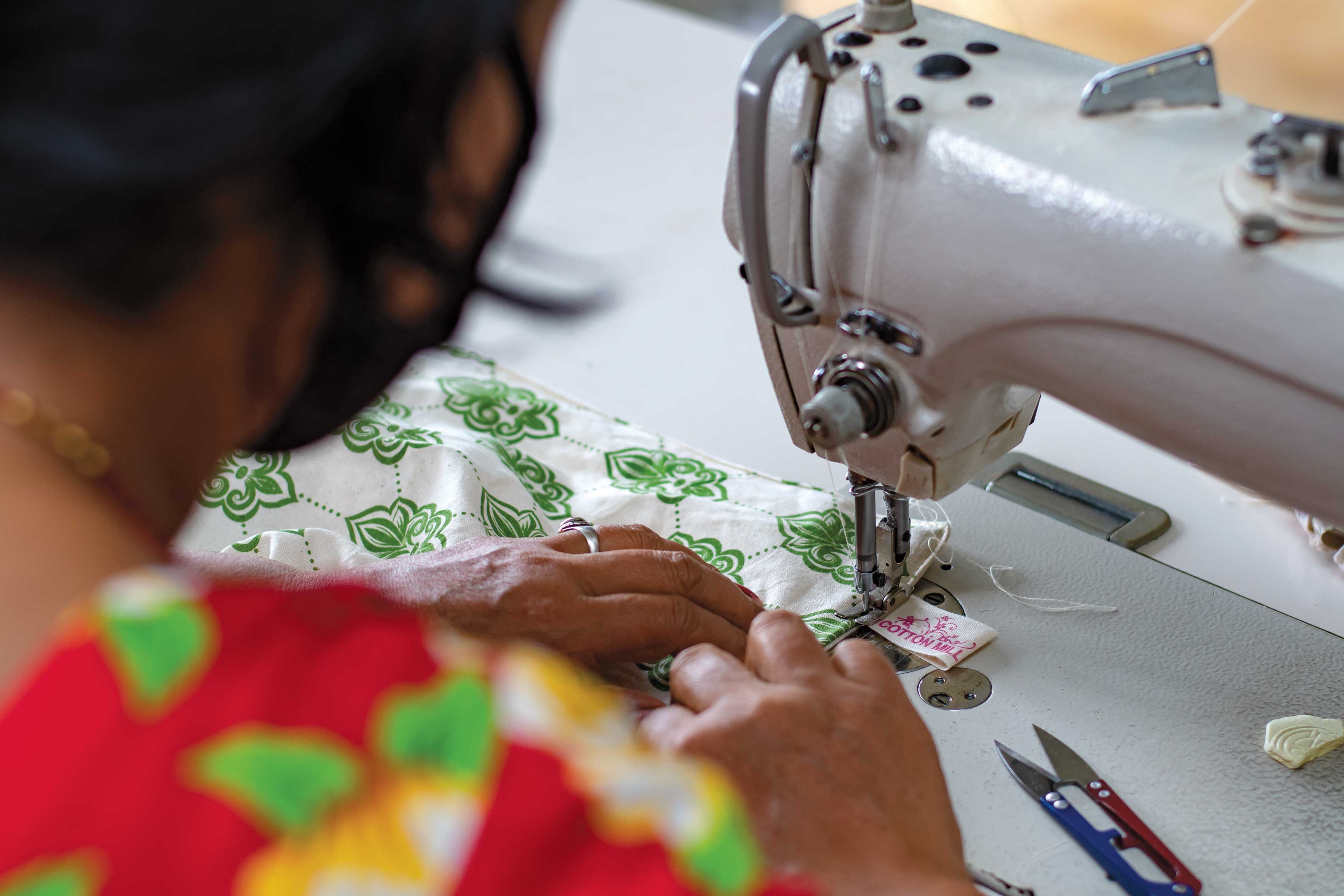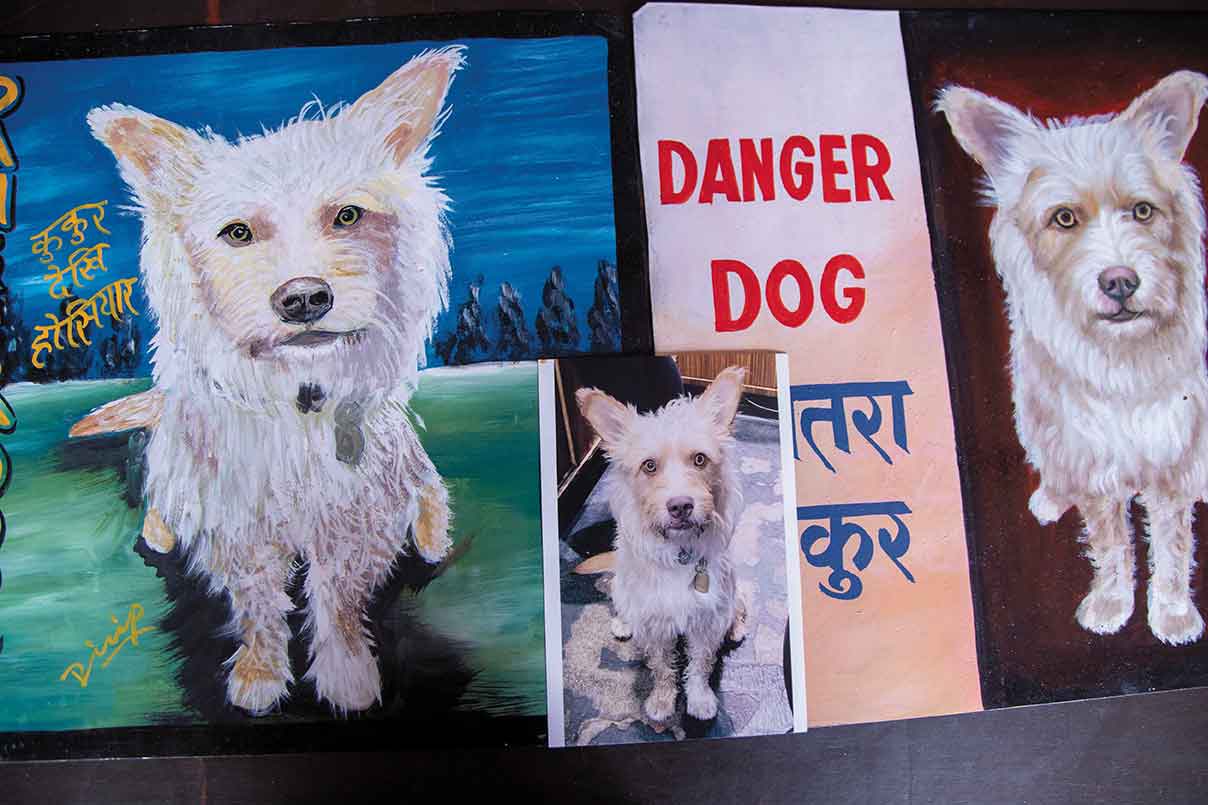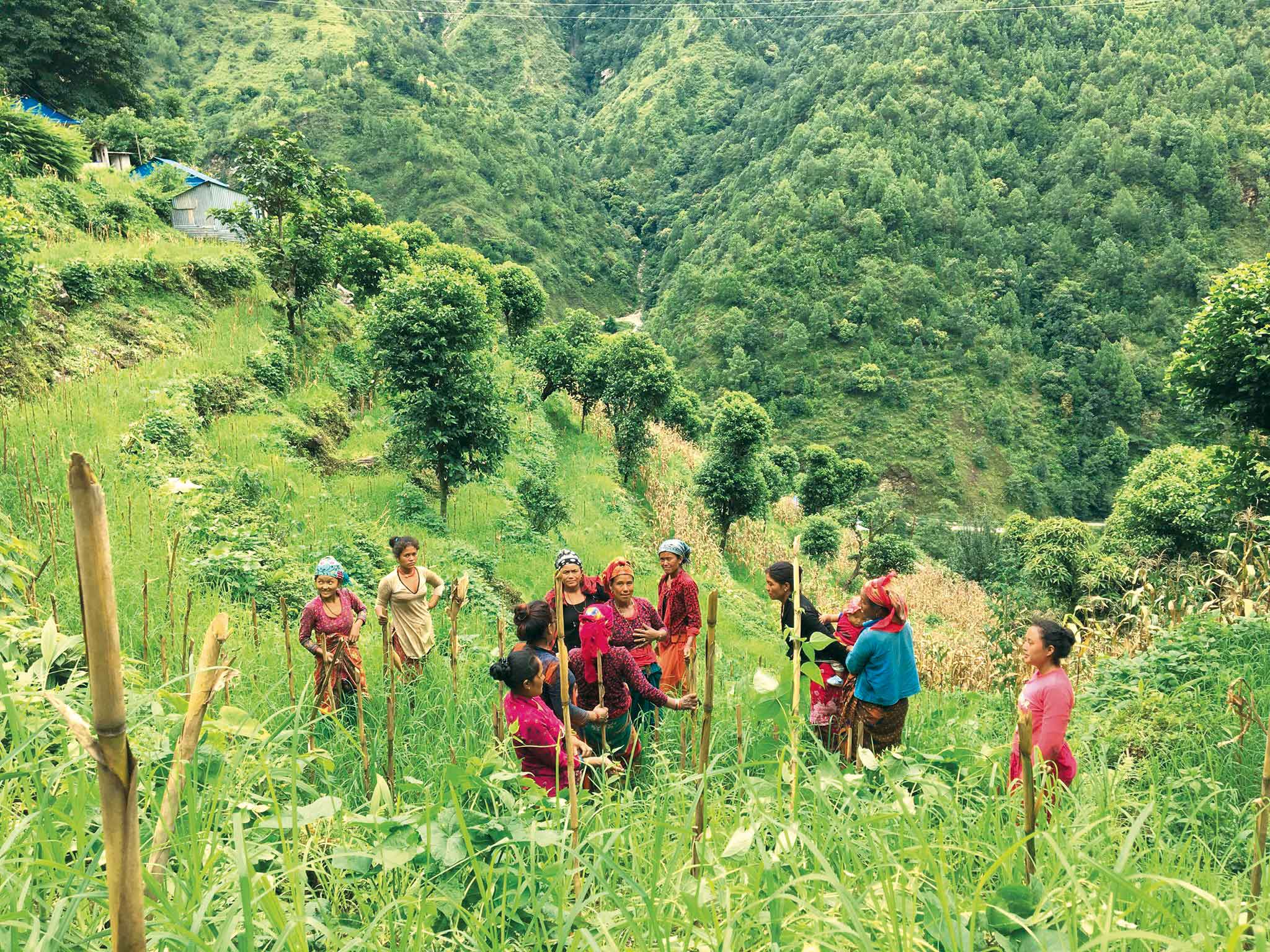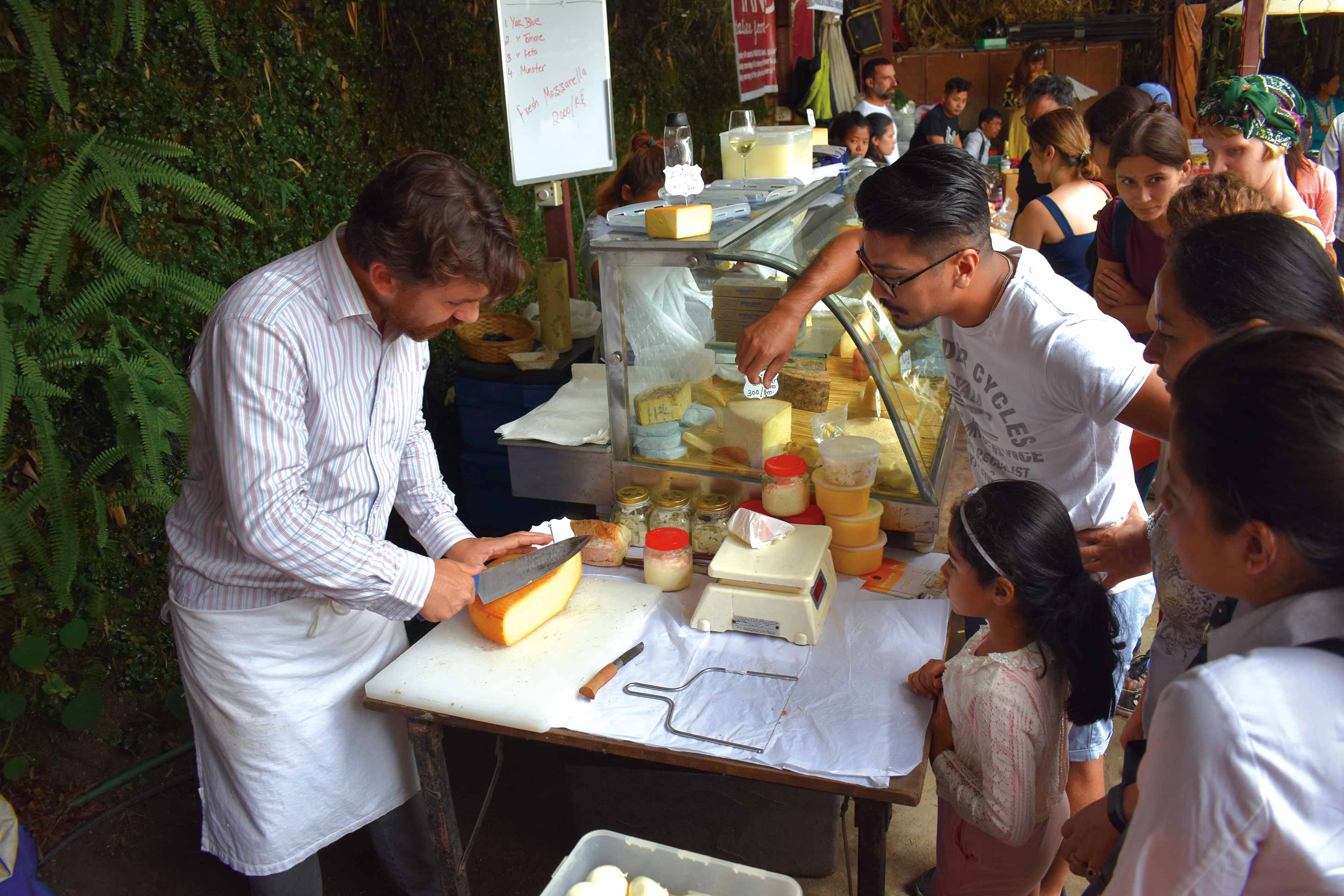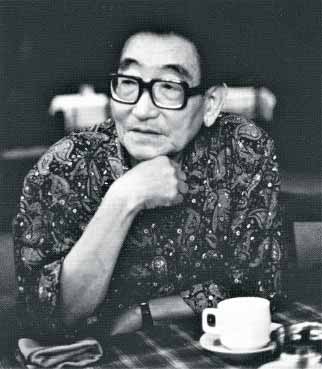
It was the morning of Pema’s wedding day in Brabal, a small village in Langtang National Park. She is my niece and 21 years old this year. Dharma, my cousin, is very happy today that he is giving away his daughter in marriage.
While we were chatting with our relatives, suddenly Dharma came to us and said, “Let’s go inside. They are coming.” Four people, each holding a Dhampey (wooden jar) with a khata wrapped around its neck, entered the house. They had come from the boy’s side to offer invitations, which in the Tamang language is called “Sumden”. The wedding is taking place at the boy’s house. Later on when it starts to get dark, every one will return to the girl’s house for a very special function called “Karma Loshi”, which can be roughly translated as “the daughter returning the favor to her parents for giving her good karma”.
The four guests offered khatas and drops of rakshi to all of us and after a brief chat, and exchanging smiles, they left. The tiny village of Brabal has about 27 houses. Pema, whose house is at the very bottom of the village, is marrying a boy who lives on the very top. So we all had to climb a small hill. Three girls led the procession, carrying Dhampey filled with rakshi. The weather was good and the view of Ganesh Himal and Langtang Lirung was awesome.
More than a hundred people had gathered in the sun while the inside of the house was arranged for the girl’s family members. We entered and took seats next to each other. Pema and her fiancé were seated in one corner. Around three dozen beer bottles filled with rakshi, blessed with the obligatory three dots of butter on the lid, were placed in front of them. Before we settled in, a group of boys got up and started singing a wedding song. Butter tea was served, followed by rakshi and food.
More people joined and the dancing began. Outside in the courtyard, men and women danced in a circle linking arms, to a beautiful Tamang song. It is well known that Tamang people of Brabal and Syabru are good singers and dancers. Songs have always been a part of their lives.
Around mid afternoon, the auspicious time came for the wedding to be made official. The bride and groom sat in the middle of the courtyard, facing all the women sitting on the left, while the men surrounded the periphery, sitting on benches and wooden planks covered with locally woven rugs. The parents of the girl and the boy sat next to the couple. Now everyone’s eyes were on the young couple.
One of the boy’s uncles stood up and spoke, “Because of God's blessings, the blessings from their parents and the blessings from the grandparents, today Pema and Baba Singi will be united. Their good luck, their destiny have today brought this couple together to be called husband and wife. May we offer our blessings too, that throughout their married life, they will remain happy and prosperous, with a dozen children playing around and this is all we have to say.” Grabbing their heads the uncle made a final call, “From this very moment Baba and Pema belong to each other. Do we all agree?” “Agree!” came a unanimous voice from the crowd and a few giggles and laughter. “Do we agree?” came the second call. “Agree!” answered the crowd again. “Do we really agree?” came the third and final call. “Agree!” the crowd agreed. The uncle gently brought their heads together three times, and everyone burst into laughter. Within seconds, the uncle jumped to his feet and began to dance, and more relatives joined in and the dance gradually developed into huge groups.
Dharma made the first step to present the newlyweds with a pair of gold earrings, two pieces of turquoise and Rupees twenty five hundred. The uncle then made an announcement, “With blessings from her father and mother, a blessing for a long and happy life, Pema’s father has generously gifted the couple with blessed rice, two turquoises, a pair of shining gold earrings and two thousand and five hundred rupees…!” “Thuche!” the crowd thanked. Dharma then blessed the young couple with butter marks on their heads. Soon everyone queued up with their gift money wrapped in khatas. First, all the grandparents gave blessings of butter on their foreheads. Once the butter ceremony was over, it was time for the announcement of gifts. The uncle received the gift money, while they proceeded to offer their khatas to the newlyweds. He announced every single gift, always followed by a loud “Thuche!” This activity went on for a long time.
It was now evening and the setting sun's last rays turned the mountains golden in color. Ama Theba and Dharma asked us to go down to their house and prepare for the night’s ceremony.
At around 9:00 pm, a caravan of flaming torches arrived. Dharma turned on his tape recorder with a Tamang song. The small courtyard now was full of people singing and dancing. The dust started rising from the ground, but the dancing went on.
Inside the house, all the elderly people had already taken their respective seats. A huge offering, called Karma Loshi, was being made by Pema. It is an important part of Tamang weddings. The offering included two doko (bamboo baskets), one full of babar (oil-fried rice bread) and the other filled with wedding cookies, two dhampeys of rakshi, and a pot full of cooked mutton along with a dried goat leg also. Meme offered a few drops of rakshi to the Gods in four directions and then it was distributed to all the single guests. Some of the people were already snoring, while others were trying to stay awake. A whole new round of tea and rakshi brought about a change in everyone's mood.
Out in the courtyard the rhythmic footsteps and the harmonious songs were continuing non-stop, as if the people of Brabal had not had the opportunity to dance for many months. It seemed the celebrations would go on forever.


